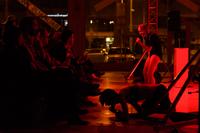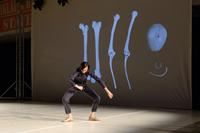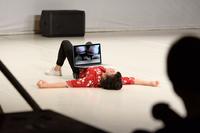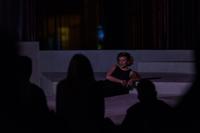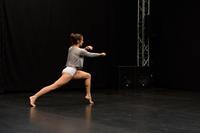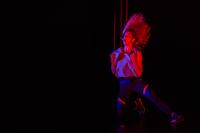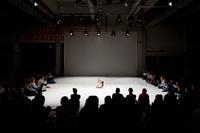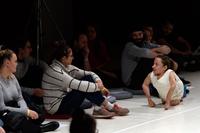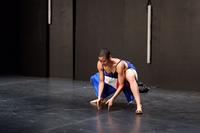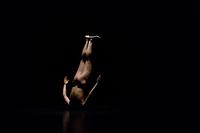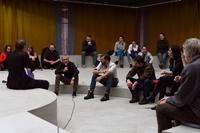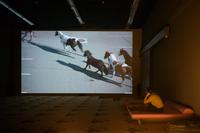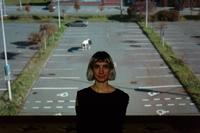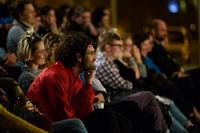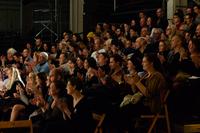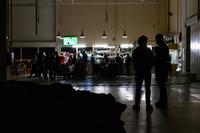NORMA
NORMA
NORMA is an international festival of theatre and contemporary art held in Ostrava. Norma is organised by PLATO Ostrava gallery and by Studio Hrdinů, a Prague-based theatre.
The NORMA festival presents original theatre projects dealing with trends and topics that have been of concern to the artists across generations and theatre genres. An important dimension of the festival is the close interconnection between theatre and visual arts, apparent in both particular theatre productions and visual art performances. This relationship is mutually beneficial: it is common for conceptual artists to reach beyond the range of the visual arts and thus theatre presents an exciting challenge for them; on the other hand, theatre-makers can find inspiration, transcend their field and discover an open-minded and fresh approach to their work.
Art director
Jan Horák
jan.horak@studiohrdinu.cz
Press
Madla Zelenková
Communication
+420 775 290 483
madla.zelenkova@studiohrdinu.cz
Production team
Zuzana Šrámková
Project manager
+420 739 273 641
zuzana.sramkova@plato-ostrava.cz
Tomáš Kadlec
Production manager
+420 734 708 138
tomas.kadlec@studiohrdinu.cz
Madla Zelenková
Production
+420 775 290 483
madla.zelenkova@studiohrdinu.cz
The fourth edition of Festival NORMA returns after a year’s gap and for the first time will be situated in the completely reconstructed spaces of PLATO, the Gallery of the City of OSTRAVA, in the former Bauhaus hobby market. The principal theme of the fourth edition's programme is woman, femininity and the related social engagement, criticism, sexuality, poetry, sensitivity…
This year the festival is built around the axis of powerful solos presenting variations on the different positions of female energy, emancipation and an ability to enthral the viewer with minimalist consistency. This enthralment can go as far as being manipulative, such as in the projects of Giuseppe Chico and Barbara Matijevič – Forecasting and Núria Guiu – Likes. Forecasting playfully intertwines a precise concept of physical movement with the inexhaustible emptiness of videos on YouTube. The self-confident performance of Fani Benages is capable of captivating an audience willing to play her game, in which she ingeniously interlaces the phenomena of media pop culture with spiritual ones.
Drawing on her personal experience, the Polish performance Pure Gold Is Sleeping Out of Me by Renata Piotrowská confronts her yearning for motherhood with the desire for artistic self-fulfilment. With her Cellule project the French performer Nach makes references to a street dance called Krump, which emerged spontaneously in the USA at the beginning of the century during racial riots. Her interpretation is very personal with an underlying theme of the sadness and loneliness of a black performer in the “white” world of dance theatre.
The other projects are the very opposite of these extrovert and to some extent socially critical shows. The performance of Seeking Unicorns by Chiara Bersani is refined minimalist activism, which intentionally works with our prejudices and sensibility. Chiara evokes a girl’s unicorn world as a universal desire for beauty and a right to it. The physical minimalist “still-life” by Luna Cenere Kokoro makes references to inspiration by Japanese culture. Luna materialises the “inner being” which resonates with us through meditatively sparse movement of the naked body. Don't Stop, a performance by Tereza Hradilková, combines the subject of desire and the world of music as something highly intimate, untouchable, even painful in an effort to fully grasp and understand these passions.
The only “drama” in this year's edition, which is otherwise focused on physical and dance theatre, is a stage adaptation of Pain (Memoir of War) by Marguerite Duras directed by Ladislav Babuščák. The monodrama with Anita Krausová evokes the anxiety and helplessness of a woman in an extreme life situation.
After Eva Koťátková, Dominik Gajarský and Vladimíra Večeřová, the guest of this year’s NORMA from the world of fine art is the visual artist and performer Johana Střížková.
Although the programme of the festival’s fourth edition puts woman into the spotlight, it has no feminist ambitions. Rather than the “Woman and …” headline at the beginning of this concept there was an opportunity to give this fluid moniker a more specific form, which does not pretend to classify and enclose something. As usual, our ambition is that the viewer approaches each of the days as a compact programme unit and ideally sees all the performances.
Jan Horák
Art Director of Festival NORMA
PLATO
Janáčkova 22 (former Bauhaus store), Ostrava
map
Tram stop: Stodolní
Bus stop: Konzervatoř
Train stations: Ostrava-Stodolní, Ostrava hl.n.
Check timetables at www.dpo.cz. Public transport (MHD) tickets can be purchased at ticket machines, via SMS (send DPO70 as a text of an SMS to the number 902 30) or with contactless bank card (“tap and ride”).
- Pass 600/300 CZK*
- All-day admission 400/200 CZK*
- Individual performances 150/100 CZK*
* students, teachers, senior citizens and disabled people
Presale is available on GoOut and at the PLATO (Ostrava) and Studio Hrdinů (Prague) box offices.
Tickets for individual performances are available at the venue before each performance.
Accommodation
Low-cost accommodation
- Koleje Jana Opletala – Hladnov price from 400 CZK / night
- Hotel VP1 v areálu Dolní oblasti Vítkovic price from 750 CZK / night
Hotels
- Hotel Max price from 800 CZK / night
- Hotel Veronika price from 950 CZK / nightc
- Hotel Maria price from 1 200 CZK / night
- Hotel Imperial price from 1 500 CZK / night
- Other accommodations are listed on the Ostrava City Information Centre website.
Where to eat
We recommend the following restaurants and bars in the Ostrava city center. They are open on weekends:
- Boule za ušima (Mon–Sun), vege
-
La Petite Conversation (Mon–Sat up to 3 pm), vege
- Cafe Au Pere Tranquille (Mon–Sun), vege
- Ostrawina (Mon–Sat
- Divadelní klub NDM (Tue–Sun from 7 pm)
- Hospůdka u Kohlera (Mon–Sat)
- U Křižánka (Mon–Sun)
- Moravská chalupa (Mon–Sat)
- Los Capolitos (Mon–Sun), vege
-
Babetti (Wed–Sat)
-
Black Kale (Mon–Sat), vege, vegan
What to see
- Dolní oblast Vítkovice National cultural heritage
- The House of Art Significant Czech art museum; the building is from 1926
- New Town Hall Lookout Tower Built between 1925–1930; the lookout terrace is located at a height of 73 metres
- The Ema Heap 315 metres above sea level; clouds of smoke rise from the heap and the inner temperature reaches over 1000° C
- ‘Michal’ Coalmine in Ostrava National cultural heritage
- Discover more Ostrava Information Service
Press
117←→
